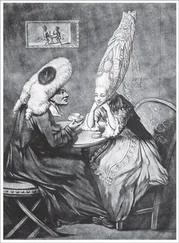Bill Bryson - Notes from a small Island
Здесь есть возможность читать онлайн «Bill Bryson - Notes from a small Island» весь текст электронной книги совершенно бесплатно (целиком полную версию без сокращений). В некоторых случаях можно слушать аудио, скачать через торрент в формате fb2 и присутствует краткое содержание. Жанр: Современная проза, на английском языке. Описание произведения, (предисловие) а так же отзывы посетителей доступны на портале библиотеки ЛибКат.
- Название:Notes from a small Island
- Автор:
- Жанр:
- Год:неизвестен
- ISBN:нет данных
- Рейтинг книги:4 / 5. Голосов: 2
-
Избранное:Добавить в избранное
- Отзывы:
-
Ваша оценка:
- 80
- 1
- 2
- 3
- 4
- 5
Notes from a small Island: краткое содержание, описание и аннотация
Предлагаем к чтению аннотацию, описание, краткое содержание или предисловие (зависит от того, что написал сам автор книги «Notes from a small Island»). Если вы не нашли необходимую информацию о книге — напишите в комментариях, мы постараемся отыскать её.
Notes from a small Island — читать онлайн бесплатно полную книгу (весь текст) целиком
Ниже представлен текст книги, разбитый по страницам. Система сохранения места последней прочитанной страницы, позволяет с удобством читать онлайн бесплатно книгу «Notes from a small Island», без необходимости каждый раз заново искать на чём Вы остановились. Поставьте закладку, и сможете в любой момент перейти на страницу, на которой закончили чтение.
Интервал:
Закладка:
One of the charms of the British is that they have so little idea of their own virtues, and nowhere is this more true than with their happiness. You will laugh to hear me say it, but they are the happiest people on earth. Honestly. Watch any two Britons inconversation and see how long it is before they smile or laugh over some joke or pleasantry. It won't be more than a few seconds. I once shared a railway compartment between Dunkirk and Brussels with two Frenchspeaking businessmen who were obviously old friends or colleagues. They talked genially the whole journey, but not once in two hours did I see either of them raise a flicker of a smile. You could imagine the same thing with Germans or Swiss or Spaniards or even Italians, but with Britons never.
And the British are so easy to please. It is the most extraordinary thing. They actually like their pleasures small. That is why, I suppose, so many of their treats teacakes, scones, crumpets, rock cakes, Rich Tea biscuits, fruit Shrewsburys are so cautiously flavourful. They are the only people in the world who think of jam and currants as thrilling constituents of a pudding or cake. Offer them something genuinely tempting a slice of gateau or a choice of chocolates from a box and they will nearly always hesitate and begin to worry that it's unwarranted and excessive, as if any pleasure beyond a very modest threshold is vaguely unseemly.
'Oh, I shouldn't really,' they say.
'Oh, go on,' you prod encouragingly.
'Well, just a small one then,' they say and dartingly take a small one, and then get a look as if they have just done something terribly devilish. All this is completely alien to the American mind. To an American the whole purpose of living, the one constant confirmation of continued existence, is to cram as much sensual pleasure as possible into one's mouth more or less continuously. Gratification, instant and lavish, is a birthright. You might as well say 'Oh, I shouldn't really' if someone tells you to take a deep breath.
I used to be puzzled by the curious British attitude to pleasure, and that tireless, dogged optimism of theirs that allowed them to attach an upbeat turn of phrase to the direst inadequacies ' well, it makes a change', 'mustn't grumble', 'you could do worse', 'it's not much, but it's cheap and cheerful', 'it was quite nice really' but gradually I came round to their way of thinking and my life has never been happier. I remember finding myself sitting in damp clothes in a cold cafe on a dreary seaside promenade and being presented with a cup of tea and a teacake and going 'Ooh, lovely!', and I knew then that the process had started. Before long I came to regard all kinds of activities asking for more toast in a hotel, buying woolrich socks at Marks & Spencer, getting two pairs of trousers when I only really needed one as something daring, very nearly illicit. My life became immensely richer.
I exchanged smiles now with the happy couple at their hut, and trudged on along the beach to Mudeford, a hamlet standing on a spit of sandy land between the sea and the reedy sprawl of Christchurch Harbour, with a handsome view across to the Priory. Mudeford was once a refuge of smugglers, but today it is little more than a small, rather tatty parade of shops and a Volvo garage surrounded by houses, all with jaunty nautical names: Saltings, Hove To, Sick Over the Side.
I walked through it and on into Christchurch by way of a long, messy street lined with garages, dustylooking shops and halfdead pubs, thence on to Bournemouth through Tuckton, Southbourne and Boscombe. Time had not done many favours to most of these places. Christchurch's and Southbourne's shopping precincts both appeared to be locked in a slow, untidy spiral of decline, and at Tuckton Bridge a oncelovely pub on the banks of the River Stour had had its lawns sacrificed to make room for a large car park. Now it was something called a Brewers Fayre, an offshoot of the Whitbread organization. It was awful but clearly and depressingly popular. Only Boscombe seemed to have picked itself up a little. Once, the main road through it had been ugly enough to make you gasp, full of blown litter, tacky shops and cruelly unsympathetic supermarkets and department stores crammed into Victorian frontages. Now the street had been smartly pedestrianized along part of its length, the Royal Arcade was being done up with style and care and the whole was generously scattered with antique shops, which were considerably more interesting to look at than the previous range of tanning salons and bedding centres. At the far end, a shop called the Boscombe Antique Market had a big sign in the window that said 'We Buy Anything!', which seemed an unusually generous offer, so I went inside, gobbed on the counter and barked, 'How much for that then?' I didn't, of course it was shut but I'd have liked to.
It was a long haul from Highcliffe to Bournemouth, ten miles or so altogether, and well into my daily happy hour by the time I reached East Overcliff Drive and the last leg to town. I paused to lean on a white fence rail and take in the view. The wind had died and in the pale evening light Poole Bay, as the sea at Bournemouth is called, was entrancing: a long, majestic curve of crumbly cliffs and wide golden beaches stretching from below the Isle of Wight tor the purply Purbeck Hills. Before me the lights of Bournemouth and Poole twinkled invitingly in the gathering dusk. Far below, the town's two piers looked cheerful and dashing, and far out at sea the lights of passing ships bobbed and blinked in the dusky light. The world, or at least this little corner of it, seemed a good and peaceful place, and I was immensely glad to be there.
Throughout this trip, I would have moments of quiet panic at the thought of ever leaving this snug and homey little isle. It was a melancholy business really, this trip of mine a bit like wandering through a muchloved home for a last time. The fact is, I liked it here. I liked it very much. It only took a friendly gesture from a shopkeeper, or a seat by the fire in a country pub, or a view like this to set me thinking that I was making a serious, deeply misguided mistake.
Which is why, if you were one of those clifftop strollers in Bournemouth that mild evening, you may have seen a middleaged American wandering past in a selfabsorbed manner and muttering in the tone of a mantra: Think of Cecil Parkinson's hair. Think of VAT at 17.5 per cent. Think of loading your car to overflowing with rubbish on a Saturday and driving to the tip only to find that it is shut. Think of hosepipe bans after ten months of rain. Think of the strange, unshakeable fondness of BBC1 for Cagney and Lacey repeats. Think of .. .'
CHAPTER SEVEN
I WENT TO SALISBURY ON A BIG RED DOUBLEDECKER BUS THAT SWAYED down winding country roads and clattered through overhanging branches in a most exciting way. I like Salisbury very much. It's just the right size for a town big enough for cinemas and bookshops, small enough to feel friendly and livable.
I picked my way through a busy market in the square and tried to imagine what the British see in these things. They always look so depressingly tawdry, with their upended crates and trodden lettuce leaves and grubby plastic awnings held together with clips. In French markets you pick among wicker baskets of glossy olives and cherries and little wheels of goat's cheese, all neatly arrayed. In Britain you buy tea towels and ironingboard covers from plastic beer crates. British markets never fail to put me in a gloomy and critical frame of mind.
Walking through the busy shopping streets now, I found it was the unattractive things that jumped out at me Burger Kings and Prontaprints and Superdrugs and all the other manifold Enemies of the High Street, all of them with windows cluttered with announcements of special offers and all of them shoehorned into buildings without even the most fleeting nod to their character or age. In the centre of town, on a corner that ought to have been a visual pleasure, there stood a small building occupied by a Lunn Poly travel agency. Upstairs the structure was halftimbered and quietly glorious; downstairs, between outsized sheets of plate glass covered with handwritten notices of cheap flights to Tenerife and Malaga, the fagade had been tiled tiled with a mosaic of littlemultitoned squares that looked as if they had been salvaged from a King's Cross toilet. It was just awful. I stood before it and tried to imagine what combination of architects, corporate designers and town planners could have allowed this to be done to a fine timberframed seventeenthcentury building, and could not. And the thing was that it was really not a great deal worse than many other frontages along the street.
Читать дальшеИнтервал:
Закладка:
Похожие книги на «Notes from a small Island»
Представляем Вашему вниманию похожие книги на «Notes from a small Island» списком для выбора. Мы отобрали схожую по названию и смыслу литературу в надежде предоставить читателям больше вариантов отыскать новые, интересные, ещё непрочитанные произведения.
Обсуждение, отзывы о книге «Notes from a small Island» и просто собственные мнения читателей. Оставьте ваши комментарии, напишите, что Вы думаете о произведении, его смысле или главных героях. Укажите что конкретно понравилось, а что нет, и почему Вы так считаете.












